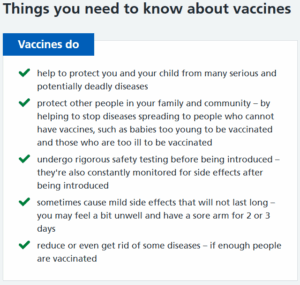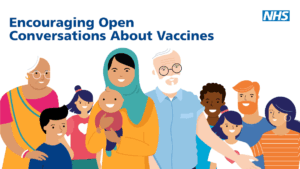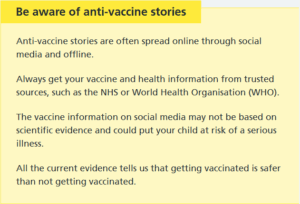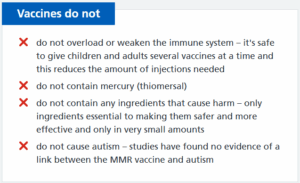Vaccine Confidence Hub
Welcome to the NHS England – South West Vaccine Confidence Hub Supporting non-clinical staff in vaccine conversations
Understanding Vaccine Confidence
Vaccines are one of the most effective tools we have to protect individuals and communities from serious diseases. Vaccine confidence refers to the trust that people have in recommended vaccines, the providers who administer them, and the systems that deliver them. It’s about feeling informed, supported, and empowered to make decisions about vaccination.
Why Vaccine Confidence Matters
Building vaccine confidence is essential for improving vaccine uptake and protecting public health. When people feel confident in vaccines, they’re more likely to get vaccinated — helping to prevent outbreaks, reduce health inequalities, and save lives.
How This Hub Supports You
This resource hub is designed to help non-clinical staff engage in meaningful conversations about vaccines. It offers tools and guidance to:
- Equip you with practical skills to engage in open, respectful conversations about vaccines
- Support a consistent, compassionate approach across the system to foster trust in vaccines
- Provide information on the vaccination schedule, how vaccines work and why they are important.
Explore the resources to strengthen your conversations and help others make informed, confident choices about vaccination.
If you are ever unsure about how to respond to questions or concerns, we encourage you to direct individuals to a healthcare professional. They are best placed to provide accurate, evidence-based advice tailored to individual needs.
You can also refer to trusted sources of information, such as:
- NHS
- GOV.UK
Conversations to build trust in vaccines
This video created by NHS England – South West is to support non-clinical staff with developing skills and confidence to engage in conversations about vaccinations.
Vaccines Explained (by the World Health Organisation) is a series of illustrated articles that describe how vaccines work, how they’re developed and distributed and how their safety is carefully monitored.
Do you know how vaccines work? A new animation co-created by NHS England and the British Society for Immunology explains how vaccines work to help stop the spread of common, potentially life-changing diseases, reducing people’s risk of serious illness, and protecting those who cannot be vaccinated. The short animation can be shared with families, carers, staff and educators to improve their vaccine knowledge and confidence, helping everyone to make informed decisions.
This also includes:
A guide to childhood vaccinations These resources provide general information about vaccines, focusing on childhood vaccines.
Vaccine resources in different languages
Activity packs selection of public engagement practical activities and educational resources that you can download and use for free
NHS vaccinations and when to have them – It’s important that vaccines are given on time for the best protection, but if you or your child missed a vaccine, contact your GP to catch up.

Why vaccination is important and the safest way to protect yourself – Vaccines are the most effective way to prevent many infectious diseases. This page explains how vaccines work, what they contain and the most common side effects.
Vaccine knowledge – Vaccine Knowledge is a source of independent, evidence-based information about vaccines and infectious diseases.
What to expect after vaccinations (including translations) – Information about the common side effects of vaccinations that might occur in babies and young children up to 5 years of age.
NHS Vaccinations – Find out about vaccinations for babies, children and adults, including why they’re important and how to get them.
A postcard visual is available to share, which outlines a child’s schedule of vaccinations: Your child’s vaccine schedule postcard July 2025
Please visit our resources hub for health care professionals. The resources can be accessed via the FutureNHS platform and are available here



